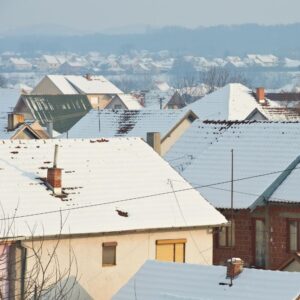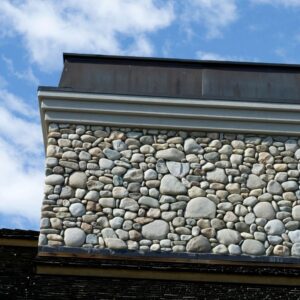 Given where we live, rain and snow are a fact of life. And with all that lovely precipitation, comes the chance of that water getting into your chimney system. If you’ve read some of our other blogs, you know that water and your chimney are not a match made in heaven. Yet, while we can’t prevent rain or snow from happening, we can help you protect your chimney and home from it.
Given where we live, rain and snow are a fact of life. And with all that lovely precipitation, comes the chance of that water getting into your chimney system. If you’ve read some of our other blogs, you know that water and your chimney are not a match made in heaven. Yet, while we can’t prevent rain or snow from happening, we can help you protect your chimney and home from it.
Ozark Stove and Chimney has been helping the residents of Southwest Missouri and Northwest Arkansas seal their chimneys for years, and we can help you too. Call or book online with us today.
How Does Chimney Sealing Work?
You’re probably thinking that chimney sealing is some sort of gimmick, like adding that optional clear coat when you buy a new car. Well, we promise you it isn’t. It’s actually a very effective way to add a layer of protection against moisture to your chimney system.
When it comes to sealing a chimney, what we’re essentially talking about is chimney waterproofing. You may hear those two terms being intermixed – sealing and waterproofing. The basic premise of sealing a chimney is that a special water-repellant product is applied to the entire chimney exterior.
All that said, not all waterproofing products are as great as they claim or created equal. Trust us when we say this is not an area to skimp on just to save a few bucks. Once the right product has been determined for your specific chimney, our technicians will use a sprayer to apply it to your masonry from bottom to top.
Sealing Brick, Stone & Concrete Chimneys: What’s the Difference?
Since not all chimneys are created from the same materials, they can’t all be sealed the same way or with the same material. The material your chimney is made of will play a big role in determining what product is used and how the process is done. This is because the different types of materials have different levels of porousness, which affects how things are absorbed.
Here is a breakdown of the most common sealing process for each type of chimney:
- Brick: Bricks tend to be less porous than cinder block, but different types of bricks can also have different levels of porousness too. The thing to note about brick chimneys is that, if your bricks are spalling, meaning the faces of them are coming off or have popped off, waterproofing or sealing won’t help. If this is where you’re at with your chimney, you need to call us so we can discuss options to help repair the structure of your chimney first – after which we can look at sealing options.
 Concrete: These types of chimneys are the most porous. Fortunately, our expert technicians here at Ozark Stove and Chimney have plenty of experience, no matter the construction material used. It just takes the right material and a few extra passes application wise.
Concrete: These types of chimneys are the most porous. Fortunately, our expert technicians here at Ozark Stove and Chimney have plenty of experience, no matter the construction material used. It just takes the right material and a few extra passes application wise. - Stone: Depending on what type of stones are used, stone chimneys can either be really porous or not super porous. Either way, they tend to not respond too well to waterproofing products. If the stones are made of silica, most products will work, but if they aren’t, we’ll have a tougher time. However, the waterproofing will seal the mortar joints that hold the stone in place so this is a benefit.
In the end, no matter what your chimney is made or the current condition it’s in, calling us in from the get-go is going to be the best course of action. From there, we can examine your chimney, then make a determination on the best path moving forward, whether that means investing in repairs first or diving right into the waterproofing process.
How Long Does Chimney Sealing Last?
The longevity of chimney sealing/waterproofing can vary depending on where you live and what type of elements and weather conditions your chimney is subjected to. If the job is done right – and with the right industry-grade product – most customers will be good for 8 – 12 years. In an effort to be proactive, it isn’t a bad idea to have it redone every 10 years.
Keep in mind, this timeframe only applies when having professionals apply reliable sealants. A DIY attempt with a store-bought repellent isn’t going to last as long, sometimes needing to be redone every year. In addition, while these products can effectively prevent moisture penetration, they also trap moisture in (something our vapor-permeable products won’t do), which can cause further damage and deterioration.
Long story short… It’s best to hire us from the very start.
Call Today for Chimney Waterproofing
When it comes to sealing or waterproofing your chimney, Ozark Stove and Chimney has you covered. Give our friendly staff a call today at 417-201-6585 to set up an appointment. One of our educated and skilled technicians would be happy to come out and see how we can help keep your chimney in tip-top shape and protect your investment.
